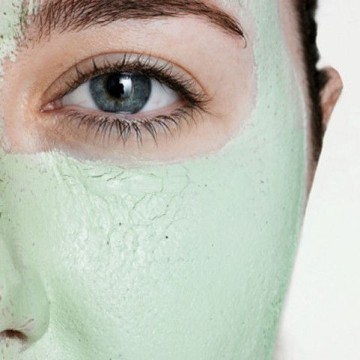
Does tap water cause acne? It may be time to breakup with your faucet and try other methods of cleansing.
How you wash your face has become an It question in the beauty industry. Do you follow the advice of French celebrity dermatologists and worship the oil cleansing method? Is the Clarisonic your skin’s best friend or worst nightmare? Are you paralyzed by the dilemma—to exfoliate or not to exfoliate?
As if that weren’t enough, I’ve got another puzzler for you: According to a recent Self article, your tap water could be a major factor in your breakouts. I’ve griped about hard water before—water high in minerals can cause a host of beauty troubles, most noticeable of which may be buildup in your hair (caused, in part, by insufficient soap sudsing and soap getting left in your hair.)
As it turns out, that accursed soapsuds dilemma may be wreaking havoc on our skin as well. If washing in hard water leaves a film of soap on our strands, you can bet it’s doing the same thing to our skin. This can clog pores, irritate skin, and leave us feeling dry and un-glowing.
While switching to an in-home filtration system (ugh, seriously?) may help, these filters will not catch metals like iron, zinc, magnesium, copper and lead (eek). According to Dr. Dennis Gross, when met with skin’s natural oils, these impurities can change the consistency of the oils to wax—which is not pore-friendly! The same thing can happen with creams, serums, and lotions that are otherwise non-comendogenic.
It doesn’t stop at acne, Gross explains. Over time, washing with water containing the aforementioned nasties can lead to free-radical damage and collagen breakdown. Disclaimer: Gross sells a cream that chelates metals from skin.
How on earth do I wash my face and avoid hard water at the same time? There are a few methods.
First, you can wash your face entirely with oil using the oil cleansing method. Gently swipe away excess oil and follow with your serums and creams. If you’re wearing makeup, repeat this process until the excess oil you wipe off contains no smears of makeup. If you feel you need a little water on your skin, mist liberally with toner before applying your final moisturizer.
Second, you can wash with distilled water or spring water. (Many grocery stores provide spring water machines that allow you to fill up a large, reusable water jug for a small fee. To make sure the spring water is low in minerals, check out the brand’s website.) Decant water into smaller bottle or jars you can use more conveniently in your bathroom.
(Of course, you will naturally get a little tap water on your face when you wash your hair in the shower. C’est la vie.)
I do like the feel of washing my face in water—and it’s certainly necessary if you plan to use a facial brush like the Clarisonic—and so the experiment begins: Starting this week, I’ll be washing my face with non-tap water that I will try to source in the most eco way possible. After doing this for a month, I’ll report back!
Also by Mary: Should You Take Digestive Enzyme Supplements?
Natural Beauty – DIY Glitter Nails
Related: How Hard/Soft Waters Affect Your Hair
Photo: FoundryParkInn via Flickr
